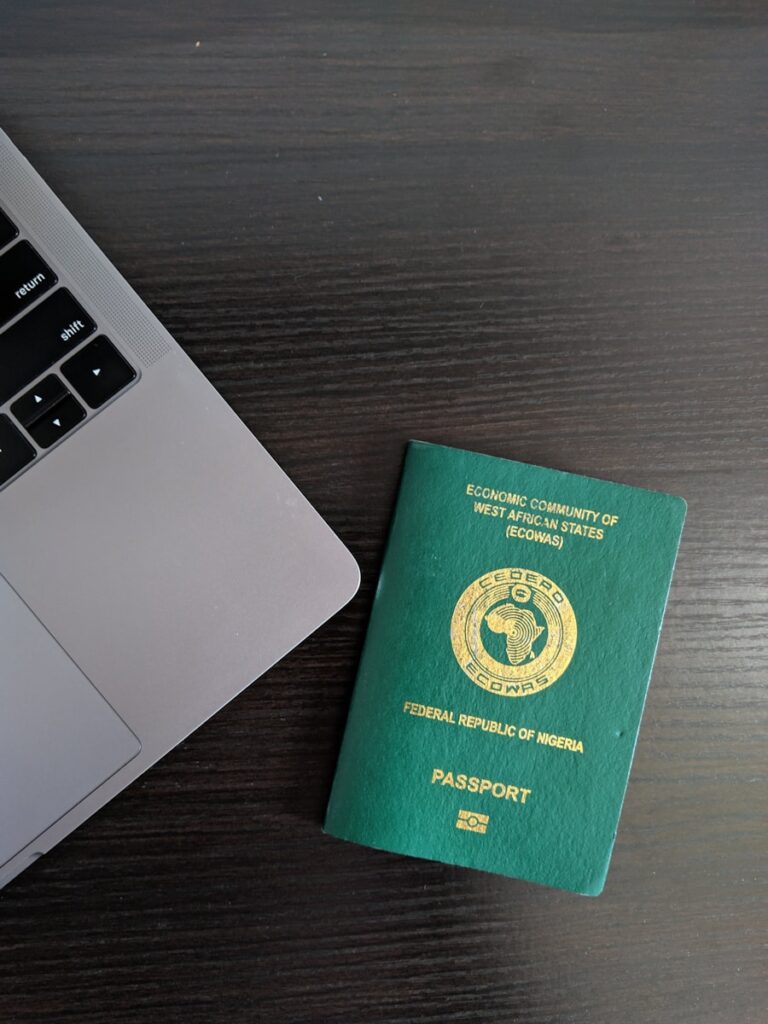The visa process can often seem daunting, especially for those unfamiliar with the intricacies of international travel. At its core, a visa is an official document that allows a foreign national to enter, stay, or leave a country for a specified period. Understanding the visa process begins with recognizing that it varies significantly from one country to another.
Each nation has its own set of rules, regulations, and procedures that govern how visas are issued. This complexity can lead to confusion, but it is essential for applicants to familiarize themselves with the specific requirements of the country they wish to visit. Moreover, the visa process typically involves several stages, including application submission, documentation review, and potential interviews.
Each of these stages requires careful attention to detail and adherence to the guidelines set forth by the consulate or embassy. Applicants must be prepared to navigate through various forms and requirements, which can differ based on the type of visa being sought. Understanding these nuances is crucial for a successful application and can significantly impact the overall experience of traveling abroad.
Key Takeaways
- Understanding the Visa Process:
- Understand the different steps involved in the visa application process, including the requirements and timelines.
- Types of Visas and Their Requirements:
- Learn about the different types of visas available and their specific requirements, such as tourist visas, student visas, and work visas.
- Gathering Required Documentation:
- Gather all necessary documents, such as passport, photographs, financial statements, and any other specific requirements for the chosen visa type.
- Completing Visa Application Forms:
- Fill out the visa application forms accurately and completely, ensuring all information is correct and up to date.
- Submitting Visa Application:
- Follow the specific instructions for submitting the visa application, including any required fees and processing times.
- Visa Interview Preparation:
- Prepare for the visa interview by understanding the potential questions and having all necessary documentation and information ready.
- Handling Visa Denials and Rejections:
- Understand the reasons for visa denials and rejections, and learn how to handle and potentially appeal the decision.
- Tips for Successful Visa Documentation:
- Follow tips and best practices for successful visa documentation, including being organized, thorough, and honest throughout the process.
Types of Visas and Their Requirements
Visas come in various forms, each designed to accommodate different purposes of travel. The most common types include tourist visas, business visas, student visas, and work visas. Tourist visas are typically issued for short stays and are intended for individuals who wish to explore a country for leisure.
In contrast, business visas cater to those traveling for professional reasons, such as attending meetings or conferences. Each type of visa has its own set of requirements that applicants must meet to qualify. For instance, a tourist visa may require proof of accommodation, travel itineraries, and financial stability to ensure that the applicant can support themselves during their stay.
On the other hand, a student visa often necessitates acceptance into an educational institution and proof of sufficient funds to cover tuition and living expenses. Work visas usually demand sponsorship from an employer in the host country and may require specific qualifications or skills. Understanding these distinctions is vital for applicants as they prepare their applications and gather necessary documentation.
Gathering Required Documentation

Once applicants have identified the type of visa they need, the next step involves gathering the required documentation. This stage is critical, as incomplete or incorrect documentation can lead to delays or even denials in the visa application process. Common documents typically include a valid passport, photographs that meet specific criteria, proof of financial means, and any additional paperwork relevant to the type of visa being applied for.
For example, students may need to provide acceptance letters from educational institutions, while business travelers might need letters from their employers. In addition to these standard documents, applicants should also be aware of any country-specific requirements that may apply. Some nations may request additional information such as medical records or police clearance certificates.
It is advisable for applicants to create a checklist of all required documents to ensure nothing is overlooked. Thorough preparation at this stage can significantly enhance the chances of a successful application and reduce the likelihood of complications later in the process.
Completing Visa Application Forms
| Country | Visa Application Form Completion Rate (%) | Visa Application Form Processing Time (days) |
|---|---|---|
| United States | 85 | 10 |
| United Kingdom | 90 | 15 |
| Australia | 80 | 20 |
| Canada | 88 | 12 |
Completing visa application forms is a crucial step in the visa process that requires careful attention to detail. Each form typically includes sections that ask for personal information such as name, date of birth, nationality, and purpose of travel. It is essential for applicants to fill out these forms accurately and honestly, as any discrepancies can lead to complications or even denial of the visa application.
Additionally, many countries now offer online application systems that streamline this process but still require meticulous attention to detail. Furthermore, applicants should take note of any specific instructions provided with the application forms. Some countries may require additional information or have particular formatting guidelines that must be followed.
It is advisable for applicants to review their completed forms multiple times before submission to ensure accuracy and completeness. Taking the time to carefully complete these forms can make a significant difference in the overall success of the visa application.
Submitting Visa Application
After completing the necessary forms and gathering all required documentation, applicants must submit their visa applications. This step can vary depending on the country and its specific procedures. Some nations allow applicants to submit their applications online, while others may require in-person submissions at an embassy or consulate.
It is important for applicants to be aware of these requirements and follow them closely to avoid any potential issues. In addition to submission methods, applicants should also consider timing when submitting their applications. Many countries recommend applying well in advance of planned travel dates, as processing times can vary widely.
Some visas may be processed within a few days, while others could take several weeks or even months. By submitting applications early, applicants can alleviate stress and ensure they receive their visas in time for their travels.
Visa Interview Preparation

For many visa applicants, an interview is a critical component of the visa process. This interview typically takes place at an embassy or consulate and serves as an opportunity for officials to assess the applicant’s intentions and eligibility for the visa being sought. Preparing for this interview is essential; applicants should familiarize themselves with common questions that may be asked and practice their responses accordingly.
During the interview, it is important for applicants to present themselves confidently and professionally. They should dress appropriately and arrive on time, as punctuality reflects seriousness about the application process. Additionally, applicants should be prepared to provide any additional documentation that may be requested during the interview.
Being well-prepared can help alleviate anxiety and increase the likelihood of a favorable outcome.
Handling Visa Denials and Rejections
Despite thorough preparation and adherence to guidelines, some applicants may still face visa denials or rejections. This outcome can be disheartening; however, it is important for individuals to understand that it is not necessarily the end of their travel plans. Many countries provide reasons for denials, which can offer valuable insights into what went wrong in the application process.
In cases of denial, applicants have options available to them. They may choose to appeal the decision or reapply after addressing any issues that led to the initial rejection. It is crucial for individuals to carefully review any feedback provided by immigration officials and make necessary adjustments before attempting to reapply.
Persistence and adaptability are key traits that can ultimately lead to success in obtaining a visa.
Tips for Successful Visa Documentation
To enhance the chances of a successful visa application, there are several tips that applicants should keep in mind throughout the documentation process. First and foremost, organization is paramount; maintaining a well-structured file with all required documents can streamline both preparation and submission processes. Additionally, applicants should ensure that all documents are current and valid; expired documents can lead to immediate disqualification.
Another important tip is to seek assistance if needed. Many individuals find it beneficial to consult with immigration experts or legal professionals who specialize in visa applications. These experts can provide valuable insights into specific requirements and help navigate complex situations that may arise during the application process.
Ultimately, being proactive and informed can significantly improve an applicant’s chances of successfully obtaining a visa. In conclusion, navigating the visa process requires careful planning, attention to detail, and an understanding of various requirements associated with different types of visas. By following these outlined steps—from understanding the visa process itself to preparing for interviews—applicants can enhance their chances of success in obtaining the necessary documentation for international travel.
With thorough preparation and persistence, individuals can overcome challenges and achieve their travel aspirations.
If you are planning to travel abroad, it is essential to ensure you have all the necessary visa documentation in order. One helpful resource to consult is The Essential Guide to Preventing Mold in Your Home. Just like mold prevention requires attention to detail and proactive measures, obtaining the correct visa for your destination also requires careful planning and adherence to specific guidelines. By following the advice in this guide, you can ensure that your visa documentation is in order and avoid any potential issues during your travels.
FAQs
What is visa documentation?
Visa documentation refers to the paperwork and supporting documents required for obtaining a visa to enter a foreign country. This may include application forms, passport photos, proof of financial means, travel itinerary, and other supporting documents.
Why is visa documentation important?
Visa documentation is important because it is required by immigration authorities to assess an individual’s eligibility for a visa. Without the proper documentation, a visa application may be denied, leading to travel delays or cancellations.
What are some common types of visa documentation?
Common types of visa documentation include a valid passport, visa application form, passport-sized photos, proof of financial means, travel itinerary, letter of invitation (if applicable), and any other specific documents required by the country’s immigration authorities.
How can I ensure that my visa documentation is complete?
To ensure that your visa documentation is complete, carefully review the visa application requirements provided by the embassy or consulate of the country you plan to visit. It is also advisable to seek assistance from a visa consultant or immigration lawyer to ensure that all necessary documents are included in your application.
What should I do if my visa documentation is incomplete?
If your visa documentation is incomplete, you should immediately work on obtaining the necessary documents to complete your application. Contact the embassy or consulate of the country you plan to visit for guidance on the specific requirements and seek assistance from a visa consultant if needed.









